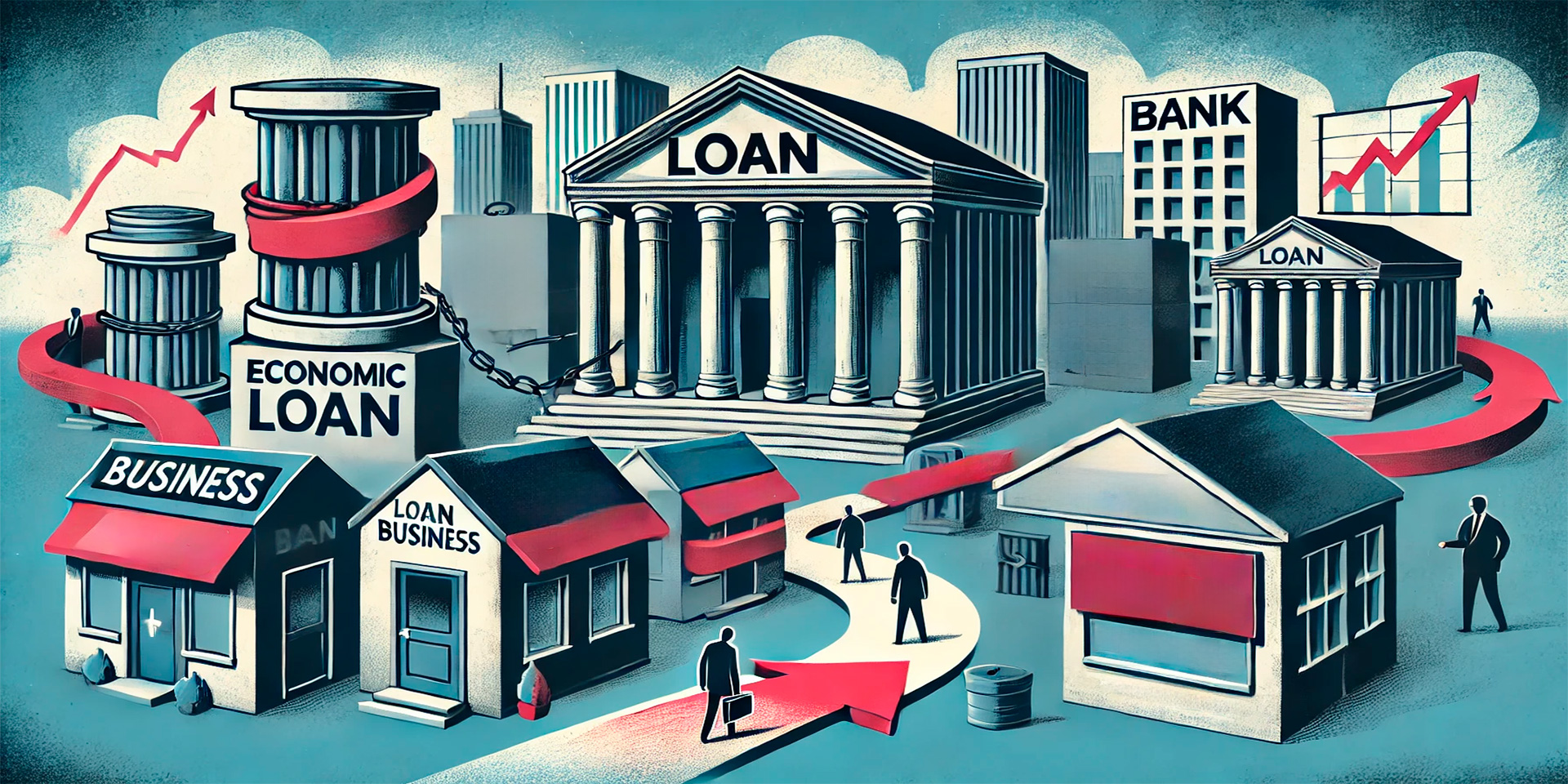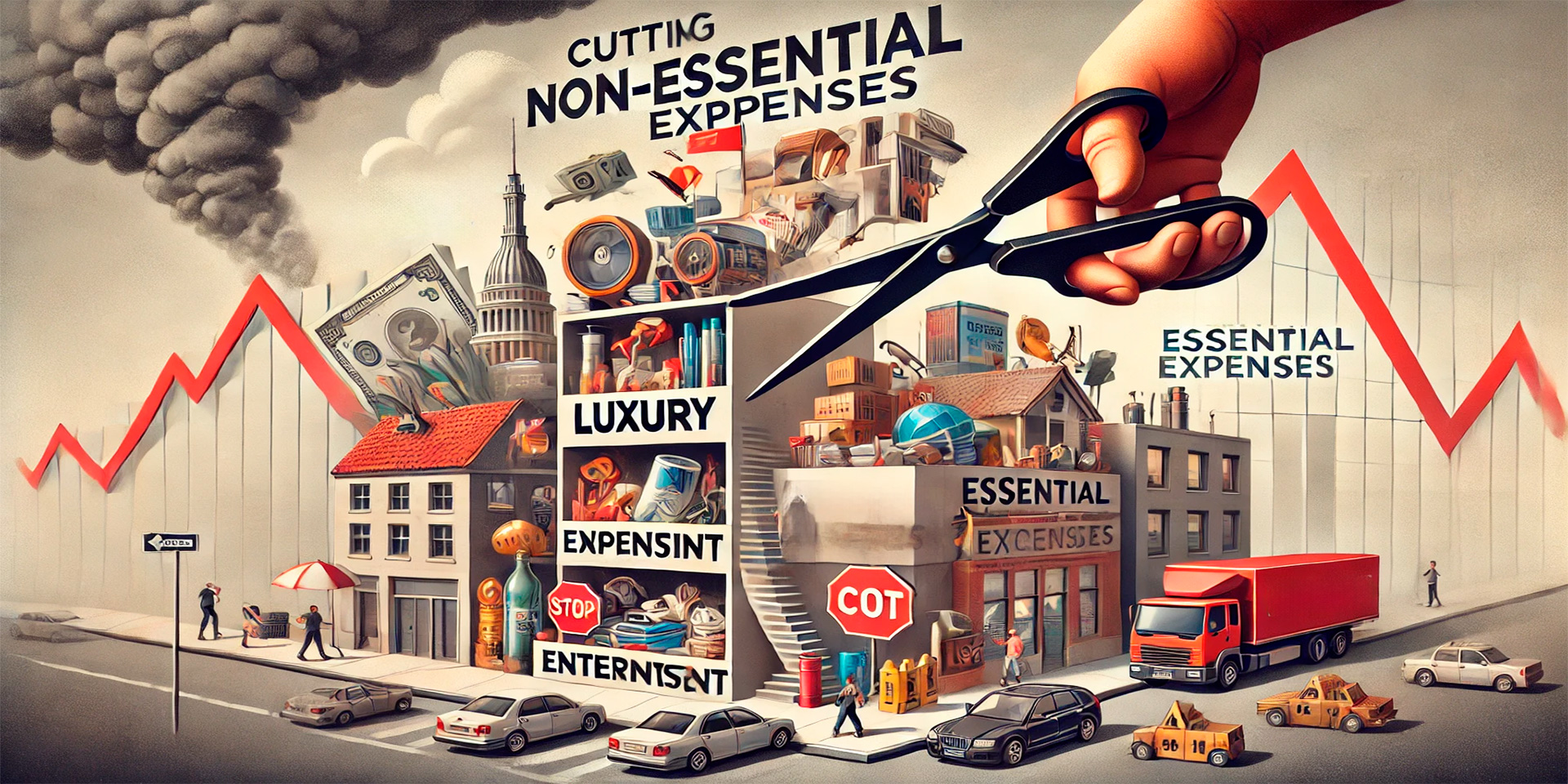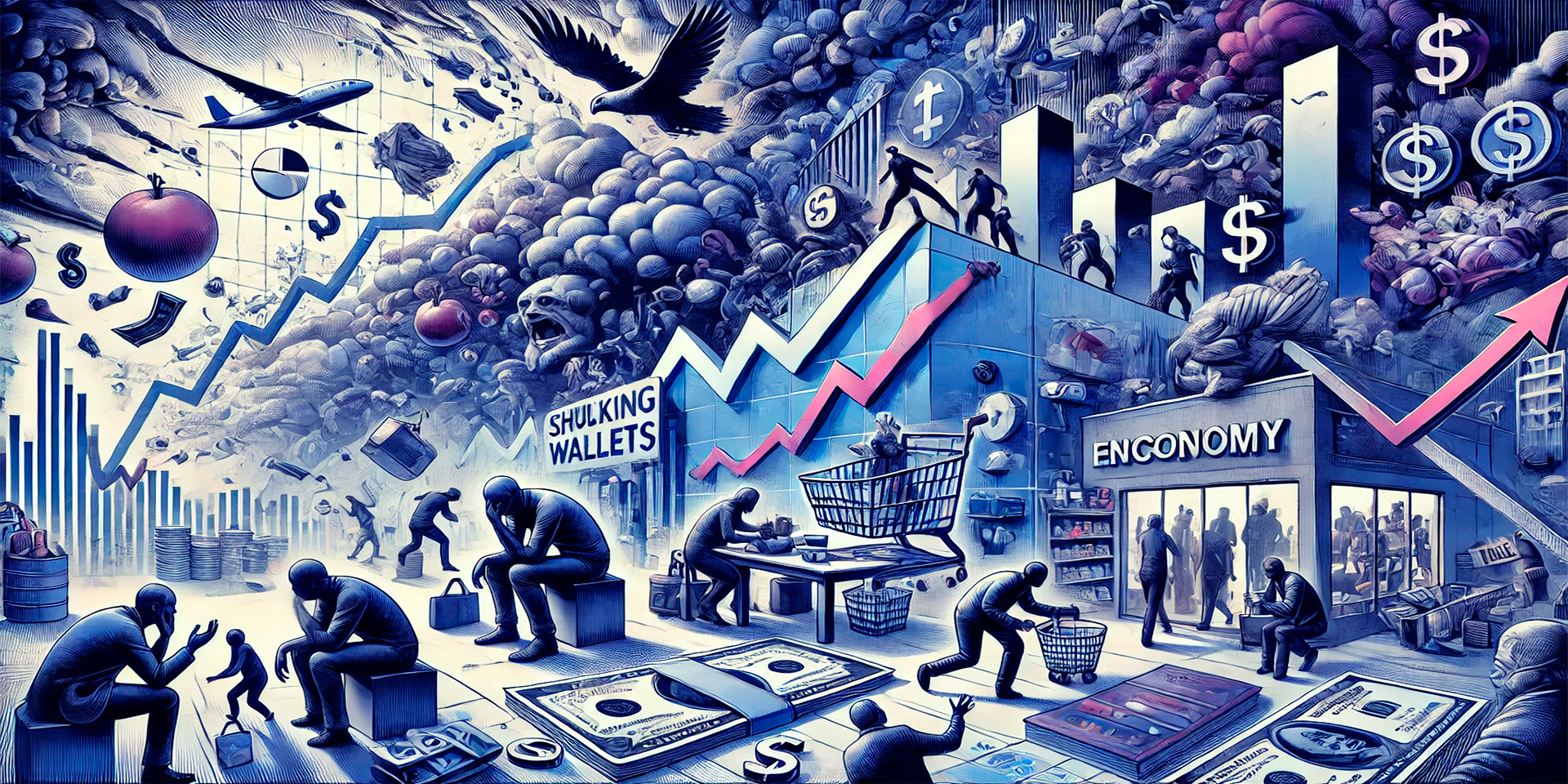Small businesses are often hit hardest during economic crises, and securing the loans needed to weather financial difficulties can be a major challenge. Whether it’s due to tighter lending standards, reduced revenue, or increased uncertainty, small businesses frequently face barriers when trying to access capital in times of crisis. In this article, we’ll explore why small businesses struggle to secure loans during economic downturns and the specific obstacles that prevent them from obtaining the funding they need to survive and grow.
The Impact of Economic Crises on Small Business Finances
During economic crises, small businesses typically face a sharp decline in revenue, often due to reduced consumer spending, supply chain disruptions, or general market instability. With cash flow becoming strained, many businesses look to loans as a means of bridging the gap between expenses and income.
However, as these businesses seek funding, they encounter numerous obstacles that make securing loans much more difficult. Banks and lenders tend to become more risk-averse during crises, tightening their lending standards and restricting access to capital.
Reduced Revenue and Cash Flow
A key reason small businesses struggle to secure loans during crises is due to a reduction in revenue and cash flow. Lenders often assess a business’s financial health by looking at its cash flow, profit margins, and ability to repay debt. During a crisis, many small businesses experience significant declines in revenue, which weakens their loan applications.
For example, a restaurant may see its revenue drop by 50% during a recession or a pandemic, making it harder to demonstrate to lenders that it can generate the income necessary to meet its loan obligations. Without strong cash flow, many small businesses are deemed too risky by lenders, leading to loan rejections or unfavorable terms.
Higher Loan Default Risk
During an economic crisis, the risk of loan defaults increases, which makes lenders hesitant to extend credit, particularly to smaller businesses with less financial resilience. Small businesses often have fewer assets to fall back on during hard times, and they are more vulnerable to market fluctuations compared to larger corporations.
Lenders, aware of the heightened risk of defaults, may choose to tighten lending criteria, requiring higher credit scores, larger collateral, or more stringent documentation from small businesses. This makes it harder for businesses with limited financial resources or less-than-perfect credit histories to qualify for loans.
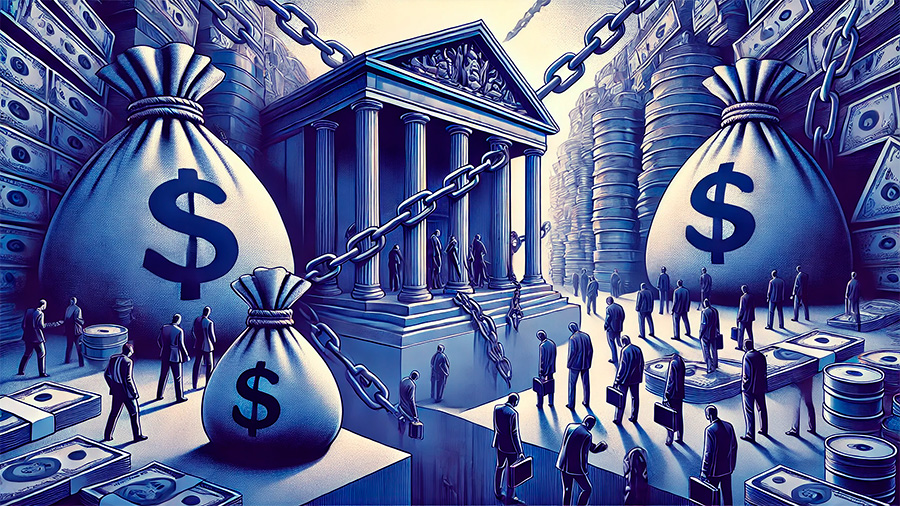
Tightening of Lending Standards
In response to economic crises, banks and financial institutions often tighten lending standards to protect themselves from the increased likelihood of loan defaults. While these measures are intended to reduce risk for lenders, they also limit the availability of capital to small businesses, which may desperately need funding to continue operations.
Increased Requirements for Collateral
During economic downturns, lenders often require more collateral to secure loans. Collateral is an asset that a business pledges to the lender as security for the loan, such as property, equipment, or inventory. In the event that the business defaults on the loan, the lender can seize the collateral to recover its losses.
For many small businesses, finding sufficient collateral can be a challenge. Smaller businesses may not have significant assets to offer as security, or they may be unwilling to risk losing their business property or equipment if they are unable to repay the loan. The increased demand for collateral during crises limits access to loans, especially for startups or businesses that operate in industries with fewer physical assets.
Higher Interest Rates and Stricter Terms
Even if small businesses are able to secure a loan, they often face higher interest rates and stricter repayment terms during crises. Lenders may increase interest rates to offset the higher risk associated with lending in an unstable economy. These higher borrowing costs can further strain a business’s finances, making it more difficult to stay afloat.
Additionally, lenders may impose shorter repayment periods, larger down payments, or stricter covenants that limit the borrower’s financial flexibility. These terms can be particularly challenging for small businesses that already have tight profit margins or limited cash reserves.
Increased Competition for Limited Capital
During economic crises, the demand for loans often surges as businesses of all sizes seek additional funding to cover operating costs, payroll, and other expenses. This leads to increased competition for a limited pool of capital, with small businesses often finding themselves at a disadvantage compared to larger, more established companies.
Larger Businesses Get Priority
Larger businesses with more substantial financial resources and established relationships with banks may be prioritized for loans over smaller businesses. Lenders often view larger businesses as less risky due to their greater ability to weather economic downturns, larger collateral bases, and stronger credit histories.
This means that small businesses may find it more difficult to compete for loans, especially in industries where larger players dominate the market. The competition for capital also leads to longer processing times for loan applications, leaving small businesses waiting for critical funding while their financial situation deteriorates.
Limited Access to Government Aid
During crises, governments often introduce financial aid programs to support struggling businesses, including loans, grants, and other forms of assistance. While these programs are designed to help, small businesses may face challenges in accessing them. Complex application processes, limited awareness of available programs, or eligibility restrictions can all act as barriers for small businesses seeking aid.
For instance, during the COVID-19 pandemic, many small businesses faced challenges applying for government-backed loans such as the Paycheck Protection Program (PPP). Some businesses were unable to navigate the application process, while others were left out due to overwhelming demand and limited funds.
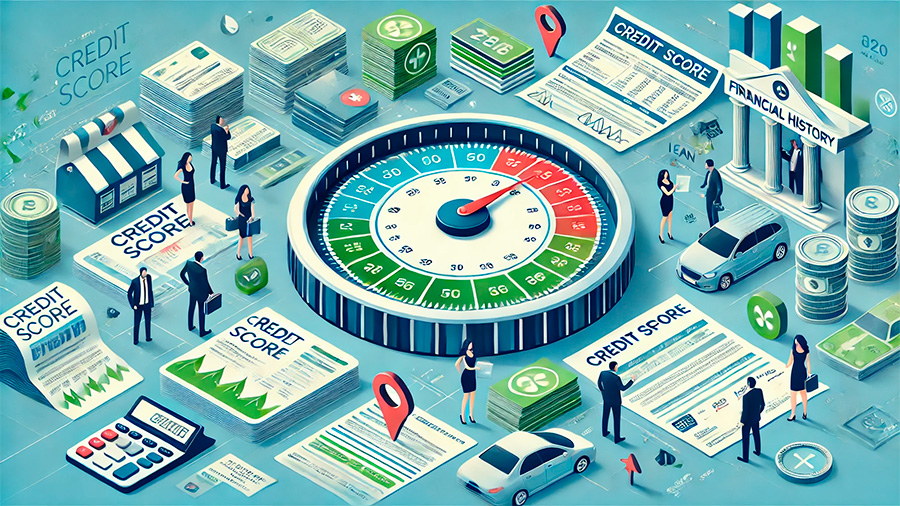
The Role of Credit Scores and Financial History
Credit scores and financial history play a significant role in the loan approval process. During crises, lenders are even more focused on assessing a business’s creditworthiness, making it harder for businesses with weak credit profiles to qualify for loans.
Impact of Lower Credit Scores
Small businesses with low credit scores may find it especially difficult to secure loans during a crisis. Lenders tend to be more cautious about lending to businesses with poor or limited credit histories, as these businesses are perceived as having a higher likelihood of defaulting on their loans.
A small business that experienced financial struggles before the crisis may face even greater challenges in securing a loan when economic conditions worsen. The crisis exacerbates their financial vulnerability, making it harder to convince lenders that they can repay the loan.
Lack of Financial Documentation
Many small businesses, particularly newer startups, may lack the financial documentation that lenders require during the loan application process. Lenders typically want to see detailed financial statements, tax returns, cash flow reports, and profit-and-loss statements to assess the business’s financial health.
In times of crisis, lenders may demand even more documentation to ensure that businesses can withstand economic uncertainty. For businesses without strong accounting systems or those that operate on thinner margins, providing this documentation can be a significant hurdle.
Alternative Financing Options for Small Businesses
While traditional bank loans may be harder to obtain during crises, small businesses still have options for accessing capital through alternative financing. These options may provide more flexibility or less stringent requirements, helping businesses secure the funding they need.
Government-Backed Loan Programs
Governments often step in during crises with programs that offer low-interest loans or loan guarantees to help small businesses. For example, the Small Business Administration (SBA) in the U.S. offers a variety of loan programs, such as the SBA 7(a) loan, which provides funding to businesses that may not qualify for traditional loans.
During the COVID-19 pandemic, government programs like the Economic Injury Disaster Loan (EIDL) and PPP loans helped small businesses access critical funding. These loans often come with favorable terms and may offer deferred payments or loan forgiveness, making them a lifeline during tough times.
Alternative Lenders and Peer-to-Peer Lending
When traditional banks tighten their lending standards, alternative lenders and peer-to-peer lending platforms may provide more accessible financing options for small businesses. These lenders typically operate with fewer restrictions than traditional banks and may offer quicker approval processes.
While alternative loans may have higher interest rates than bank loans, they can provide a more flexible solution for businesses that need immediate capital but don’t meet the stringent requirements of traditional lenders.
Conclusion: Navigating Loan Challenges During Crises
Securing loans during an economic crisis is challenging for small businesses, as they face reduced revenue, tighter lending standards, and increased competition for capital. Lenders often become more cautious, raising the requirements for collateral, credit scores, and financial documentation, making it harder for small businesses to qualify for traditional loans.
However, by exploring alternative financing options such as government-backed loans, peer-to-peer lending, or other innovative funding sources, small businesses can improve their chances of securing the capital they need to survive and grow during times of crisis. Additionally, staying proactive in managing cash flow, reducing expenses, and seeking government assistance can help businesses navigate the difficulties of securing funding during downturns.

